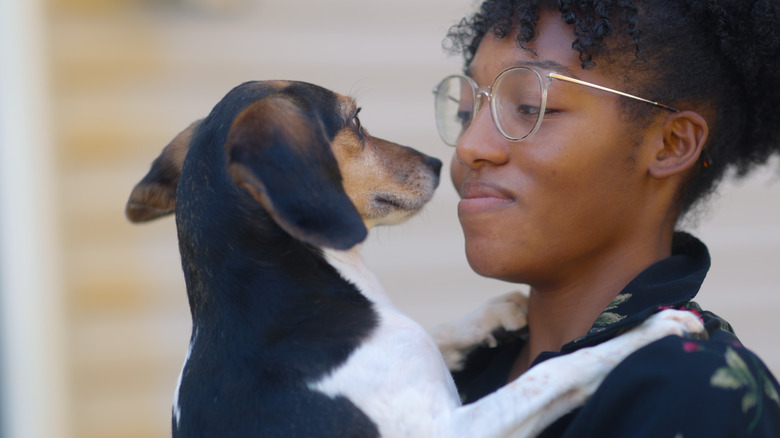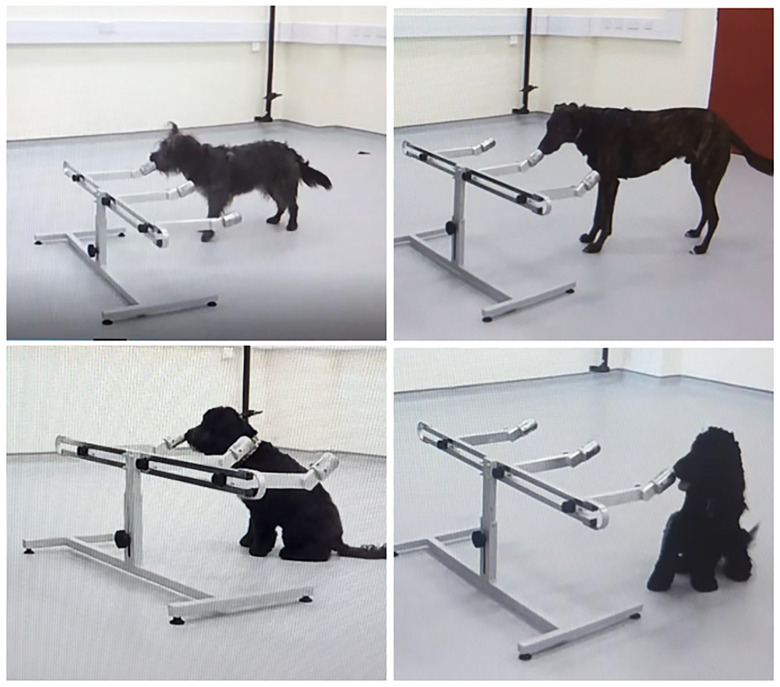Your Dog Can Smell When You're Stressed Out!
Ever notice your dog acting a little strange when you've come home after a stressful day or incident? That may be because they could smell how stressed out you are. A 2022 study published in PLoS ONE shows that, in addition to verbal and visual signs of stress, dogs can pick up on your stress levels based on the way you smell. The really interesting part? You don't even need to experience incredible amounts of stress for your dogs to pick up on it.
In the study, 36 human participants were tasked with doing a mental arithmetic problem over 36 sessions. Before doing the math problem, the participants gave researchers a sample of their breath and their sweat. This worked as a baseline to show what these people smelled like before they underwent some type of stress. They also provided scent samples immediately after doing the problem, which showed what their scent was like when they were stressed out. These samples were given to four dogs to see if the canines could tell the difference between a stressed-out person and a non-stressed-out person based on smell alone. They found that the dogs absolutely could tell when a person smelled stressed out with an impressive 93% average accuracy.
So, how was the stress level of a person measured for this study? This was a mix of collecting certain vital signs, like heart rate and blood pressure levels, as well as self-reported check-ins from the participants detailing how they felt, and of course, the scent samples. The dogs involved could, obviously, only use the scent samples to do their thing in this experiment. The samples were placed in various tubes, and once the dogs had been trained to correctly note the smell of a specific person, the dog was left to sniff out the stressed-out sample, and trained to sit down in front of it once they identified it.
The great thing about this study is that it included everyday people and dogs. The human participants were found mostly on social media, and so were the canines. If you've read this and now expect your dog to know how you're feeling all the time, it's important to note that not all dogs did 100% on each scent test — dogs Treo and Winnie scored 100%, while Fingal scored 90%, and Soot landed an 85% score. Also, the stress level collected on the sample had to be different enough from the person's initial baseline reading in order to be used. So, while these dogs could pick up on a certain amount of stress, it's unlikely that your canine friend will pick up on the fact that you're only slightly excited or agitated, at least not by using scent alone.
The findings in this study go to show that our canine companions can detect through scent when we're stressed out, even from mental stressors only. The evidence collected here supports the case for emotional support dogs and dogs who assist people living with post-traumatic stress disorder, and further solidifies the human-canine bond that's built every day.

